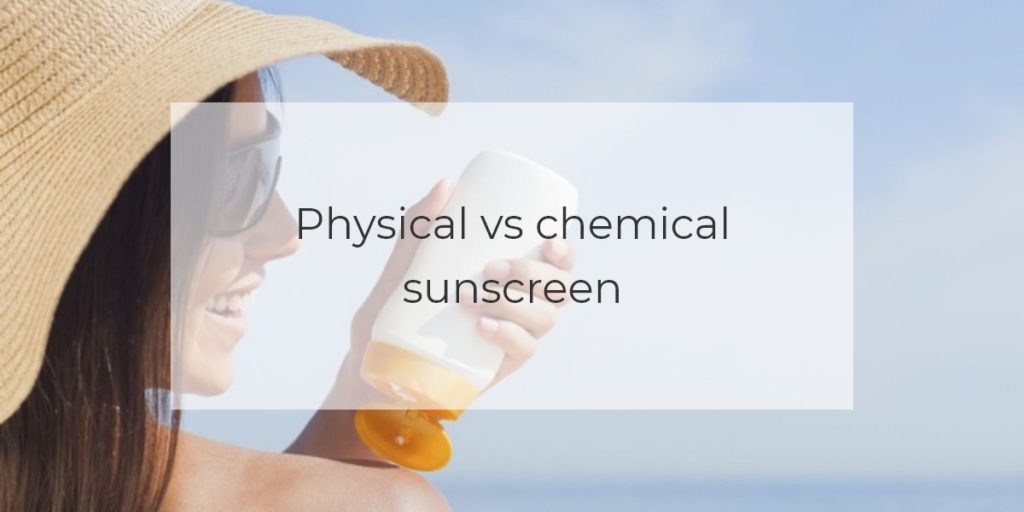Here is an essential difference you need to know so you can choose the suitable sunscreen for your skin.
· Physical sunscreen uses minerals that sit on surface of the skin and reflect away UV rays.
· Chemical sunscreen uses ingredients that absorb and transform UV rays into heat.
Physical sunscreens vs. Chemical sunscreens.
Like all the beauty products, there are pros and cons to each, which can really leave you in a dilemma on what to buy. Once you understand how they vary, it is easier to choose one that cater to your needs and concerns. Below, find the your answer about the SPF questions, so you don’t get overwhelming by the wrong decision.
Physical sunscreens may last longer than chemical ones.
Chemical and physical SPF differ in term of how long their protection lasts. Compared with physical blockers, chemical blockers tend to degrade faster when exposed to ultraviolet light. However, many chemical sunscreens now is adding more stable ingredients to fight against the non-lasting problem.
Sensitive skin may prefer physical sunscreens.
Chemical sunscreens may cause inflammation on sensitive while physical sunblocks are less likely to clog pores and irritate complexion. Physical sunscreen requires fewer ingredients to achieve broad spectrum coverage compared with chemical blockers. The less ingredients means less a risk of irritation.
Physical sunscreen takes effect faster than chemical sunscreen.
One thing to factor into your decision is how quickly physical and chemical SPFs begin to work. Since physical sunscreens are formulated with active minerals, they can provide immediate protection, while chemical sunscreens require you to wait 20 – 30 minutes before being exposes to the sun.
Pros of physical sunscreens:
· Longer shelf life.
· Low risk of irritation.
· You skin is protection from the sun as soon as it’s applied.
· Offers protection from both UVA and UVB rays.
Cons of physical sunscreens:
· Can be easily wiped off, sweated and rinsed off – more frequent applied is necessary.
· Feel heavy or increase sweating after putting on makeup.
· Appear white colors on the skin, especially in dark skin tone or photographs.
Pros of chemical sunscreens:
· Tend to be more water – and sweat-resistant.
· Thinner and spreads on the skin like a lotion, making it ideal for daily use.
· Help protects against UVA and UVB rays.
Cons of chemical sunscreens:
· Too many ingredients are required to create sun protection, which causes an increased risk of irritation.
· Only becomes effective approximately 20 – 30 minutes after application.
· May clog pores and increase breakouts on acne prone skin.
Regardless what kind of sunscreen you choose to use, the most important factor is that you wear it in daily life. We believe any sunscreen is better than no sunscreen to help your skin from sun damage.
